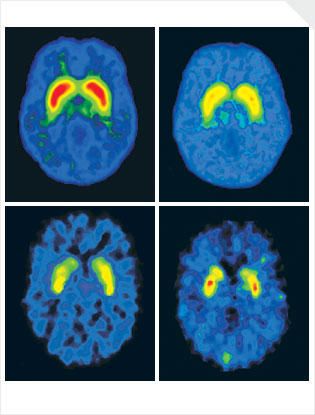Diet
I Am Bored, Therefore I Eat
How boredom eating can change your brain and how to change it back
Posted June 29, 2012
We’ve all said it at one time or another: I’m bored.

Boredom is emotional purgatory. It qualifies as neither a good or bad mood. It’s just…well… blah. Boredom can be one of the greatest challenges on the road to weight loss…not to mention on the road of life. Unfortunately many things we do to escape boredom actually make it worse, creating a vicious cycle that can lead to some pretty serious problems--including obesity.
There are two types of boredom. The first is garden variety boredom also known as the “blahs,” an acute state of lacking in pleasure/enjoyment. It is usually temporary, with some people experiencing bouts more frequently or prolonged than others. This type of boredom typically can be remedied when you discover a source of pleasure or enjoyment. Imagine you are sitting, staring at the TV, feeling bored. Then a good friend calls and says, “Come on, over, we are firing up the barbecue!” You are immediately excited-- boredom resolved.

The second type of boredom, referred to as “anhedonia”, is a neurobiologically-based reduced sensitivity to pleasurable experiences, meaning that your ability to experience pleasure is impaired. In anhedonia, the pleasure centers in your brain under-react to enjoyable life experiences. Anhedonia can be episodic too but also quite longstanding. This type of boredom is not remedied by seemingly enjoyable activities. Imagine a person who used to love barbecues gets the same phone call. He goes but does not experience the barbecue as pleasurable. People with a propensity toward anhedonia may not necessarily look as you might imagine—dragging their feet with their heads hung low. Anhedonia can instead manifest into high rates of pleasure-seeking behaviors, including drug use, smoking, compulsive sexual activity, and….overeating. These behaviors are actually attempts to really pound on those reward buttons because nothing else is working.
The Slippery Slope
Interestingly, how we go about relieving our garden variety boredom can actually cause us to develop anhedonia.

For a lot of people, boredom triggers behaviors for which there is a strong immediate biological basis for pleasure. The obvious one is eating. Others include alcohol, cigarettes, drugs, and sex. These all have in common their ability to instantly and powerfully light up the pleasure centers of our brains. The problem comes when we over-rely on immediate basic pleasures to relieve boredom ---eventually such habits can actually change your brain's capacity to experience pleasure from anything else. Check out the brain scans in the image to the left (courtesy of Pop Sci). Clockwise starting top left is lean person, obese person, alcoholic, and cocaine user. Lit up areas are the reward centers of the brain. Red indicates higher density of dopamine receptors, the neurotransmitter responsible for pleasure. You can see reward deficiencies in the people with obesity, alcoholism, and cocaine use. In rats, the normal brain can turn into the abnormal one just by forcing them to engage in any of these vices. That hedonism leads to anhedonia is just one of life's lovely little ironies.
Here are few strategies to keep the boredom away while ensuring the pleasure centers in your brain remain healthy:

1. Dump the Junk
. Food that is high in sugar, fat, and salt, should be eaten only minimally-- not a mainstay of your diet. Make a special effort to avoid these foods when bored or feeling bad--this is where you can really start messing with your brain chemistry.
1. Dump the Junk
2. Build An Arsenal. The pleasure you experience in life should not come from one single activity, but rather from many activities. Remember it is an over-reliance on one thing that paints us into a pleasure corner, slowly narrowing our brain's ability to enjoy other things. By putting enjoyable activities into your day, you can buffer yourself from using food as your “go to” boredom cure.

3. Remove Monotony, Insert Variety
. We all have routine activities that we cannot remove from life but can end up becoming monotonous and boring. To avoid monotony, add variety to some aspect of these activities. For example, if you exercise, you might plan a workout once a week in an entirely new environment. Eat dinner occasionally in a different room or outside. Adding variety to routines can give your brain multiple sources of stimulation, which helps beat down the boredom.
3. Remove Monotony, Insert Variety
Creating a fulfilling and stimulating life requires a balance between finding pleasure within and outside the routine of life. If you are stuck in a rut of boredom, constantly stretch yourself with new and different activities that give your brain a reason to light up…so that it doesn’t end up going dark on you.


